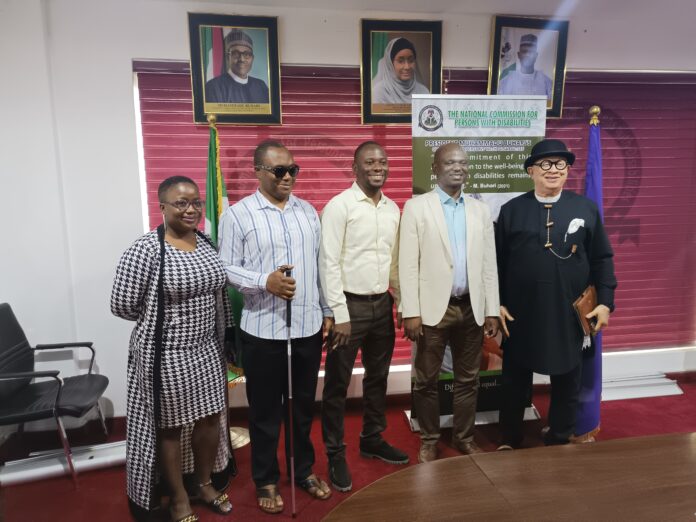National Commission for Persons With Disabilities (NCPWD) has reaffirmed their commitment towards implementation of Global Disability Summit Commitments.
The Executive Secretary, NCPWD, Mr. James David Lalu in a press conference to mark commitments to persons with disabilities in GDS 2022.
Mr. Lalu said that in 2018, Nigerian government made Committee to 7 key issues on disability at Global Disability Summit.
“One of such key commitment is the signing into law the prohibition against discrimination of PWDs known as the National Disability Act. It culminated into the establishment of NCPWD and the President admonition of States to domesticate the law which has made about 7 States to follow suit”.
Despite the progress made, Mr. Lalu acknowledged that many of the commitments still needs to be met and financed to ensure that the rights of PWDs especially marginalized group are protected and enforced.
“GDS offers a concrete mechanism to collecting new ambitions and widespread commitments which are critical to achieving real change for PWDs across the globe, in the build up to the GDS 2022 in Norway, Organizations of Persons With Disabilities (OPDs) led by Joint National Association of Persons With Disabilities (JONAPWD) with support from Sightsavers and GBM Global held consultation to make demands from NCPWD, the government”.
The ES, stated that the demands were reviewed to align with the NCPWD 5years national strategic plan, and based on it, NCPWD made some commitments to PWDs in Nigeria.
Firstly, to strengthen the capacity of OPDs, designing and implementing disability responsive projects and programsthat aims to strengthen the leadership role of youth, women, ethnic minority, indigenous people and other marginalised group of persons with disability.
Secondly, committed to Inclusion in situation of crises and conflicts including change, facilitating engagement with OPDs in review of emergency and disaster preparedness and response policies and procedures to ensure they are fully inclusive of PWDs including through accessible risk information, evacuation processes, shelter, food, water, sanitation, hygiene services and facilities, nutrition intervention and provision of health and protection services including GBV.
Thirdly, committed to Inclusive Education, promote and strengthen the inclusive education system in Nigeria through policy implementation, teacher’s capacity including teachers with disabilities, sufficient budget appropriation, effective monitoring through collection of disability data and provision of assistive device to enhance quality education for all learners with disabilities.
Fourthly, committed to Inclusive Empowerment and Livelihoods ( Including Social Protection), to transform labour market system to be more Inclusive to PWDs through relevant employability, vocational and digital training of youth with disabilities, incentivity the disability confidence of private and public employers as well as ensuring disability extra cost and disability data mechanism are mainstreamed into all social protection interventions. Also committed to Inclusive working environment which includes reasonable accommodation.
Finally, committed to Inclusive Health, taking programmatic measures to ensure that GBV risk integration and responses including sexual and Reproductive health services are inclusive of and accessible to women and girls as well as men and boys with disabilities. It includes removing physical, communicational, attitudinal and institutional barriers to access and taking measures to ensure that child protection intervention are fully inclusive of children with disabilities, developing health workforce that has the understanding, competence, knowledge and skills to address the health needs of diverse PWDs, and review health workforce curricula to enhance a human rights based and intersectional approach to disability including psychosocial disability to address stigma, stereotyping and discrimination in the health services delivery.
The ES stated also that NCPWD is committed towards partnering with Development Partners to implement these commitments.


